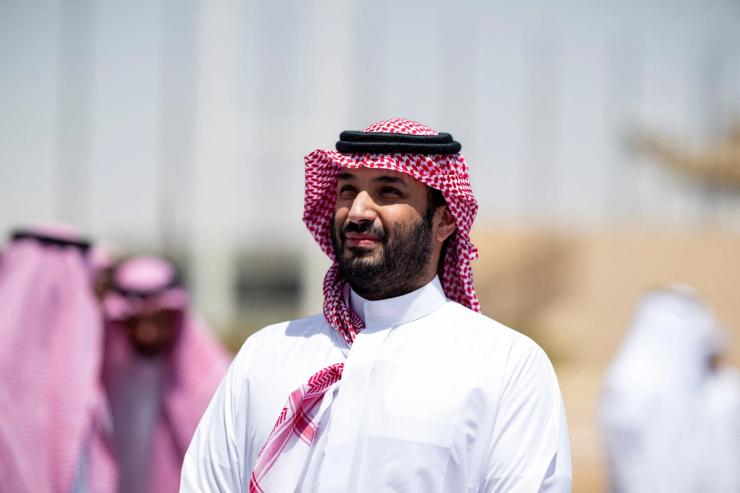The News
Saudi Arabia’s crown prince arrives at the White House today, giving President Donald Trump another chance to boast about the $9 trillion-plus in investment pledges he’s pulled in this year, with more than $3 trillion coming from Gulf states. For the expat bankers, consultants, and executives living in Riyadh — and the bosses they report to in New York — that largesse contrasts with Saudi efforts to rein in foreign spending and redirect money toward domestic projects and jobs.
That nuance will likely be lost in Washington this week, where the old stereotype of Gulf royals with bottomless oil wealth tends to stick. Many are still surprised to hear that the Saudi model of recycling energy riches into US assets has flipped: The kingdom is no longer a net exporter of capital. Like the US, it’s aggressively pursuing foreign direct investment, aiming to import goods and services from the US, not park assets there. Stubbornly low oil prices, well below the kingdom’s budget-breakeven price in the $90s, has sapped its cash and upped the urgency.
Defense and tech are outliers: Expect announcements of massive arms deals and AI infrastructure projects. But even those industries aren’t solely siphoning cash out of the kingdom anymore.
Wall Street knows this well. Saudi Arabia stopped being a bottomless pit of outward-bound investment cash a few years ago, right around the time oil prices fell and the kingdom’s ambitious megaprojects started to run into obvious problems of feasibility. Its sovereign-wealth fund, PIF, is now directing most of its efforts domestically and demanding both boots on the ground and real investment of capital, both financial and human, from Westerners coming to call. Banks are building up Riyadh operations, and asset managers are pouring money into infrastructure and startups, drawn by a young, relatively affluent population and decades of expected oil and mineral revenue.
The most significant outcome this week will be the contours of a new regional security order; Saudi Arabia will likely get the F-35 jets it wants, and may come away with a not-quite-a-treaty defense agreement, similar to the US’s arrangement with Qatar. There will be less focus on another storyline, one uniquely tied to America’s first billionaire president: the personal deals. The business ties between entities controlled by Crown Prince Mohammed bin Salman and the Trump family are well documented: real estate licensing agreements, $2 billion to Jared Kushner’s Affinity Partners, and increasingly, crypto ventures. It’s a new twist in the decades-long US-Saudi relationship that was built on institutional ties, and one both sides probably prefer to downplay. Better we all focus on the trillions, not the billions.
Notable
- The discussions held during MBS’ meeting with Trump will likely have significant gaps, like the normalization of ties with Israel and the kingdom’s high rate of executions, the director of the Middle East and North Africa Programme at think tank Chatham House writes.
- Saudi’s sovereign wealth fund-backed artificial intelligence company Humain is set to announce a slew of new deals with US firms on Wednesday, as the country looks to pour billions of dollars into a plan to become the world’s third largest country for AI, Semafor scooped.


